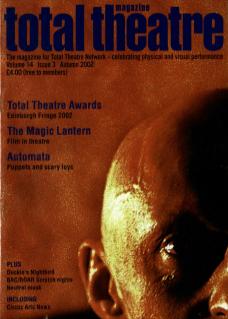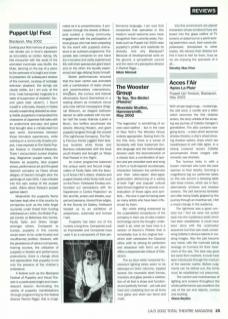‘The legendary' is something of an over-used epithet – but in the case of New York's The Wooster Group entirely appropriate. Seeing them for the first time, there is a sense of familiarity with their trademark theatre language and the technological devices used: the deconstruction of a classic text; a combination of spoken and pre-recorded word and song to form a multi-layered soundscape; interaction between live performers and their video taped alter egos; postmodern referencing of a variety of both 'high' and 'popular’ cultural data thrown together to provide a re-evaluation of those signs and symbols... this due in part to having seen so many artists who have been influenced by them.
But whilst sitting entranced by the unparalleled competence of the company in their use of ultra-modern technology came the thought: underneath it all, what we have here is a version of Racine's Phèdre that is remarkably true to the original text – which both celebrates the Classical ethos (with its striving for perfection and obsession with form) yet also offers a dispassionate critique of Classicism.
The icy blue-white horizontal fluorescent lighting strips seem to be sideways-on Doric columns, toppled towers; the moveable steel frames, monitors and glass panels a celebration of all that is sharp and function al and perfectly formed – yet cold and hard and unyielding (but we all know how glass and steel can bend and melt).
Into this environment are placed characters whose emotional lives are boxed into the glass coffins of TV screens or acted out on a point-scoring badminton court, their voices dispossessed, transposed to other bodies. We witness their distress but find it hard to feel for them, busy as we are enjoying the spectacle of it.

